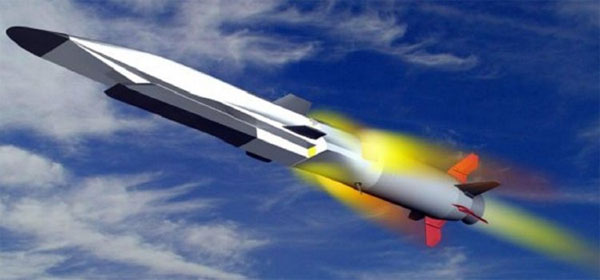Putin Warns That Russia Is Developing ‘Invincible’ Hypersonic Missiles
Feb. 6, 2019
MOSCOW — Alarmed by the Trump administration’s scrapping of a Cold War-era arms control treaty, President Vladimir V. Putin of Russia has ramped up warnings that his country is developing new hypersonic missiles that will travel at more than five times the speed of sound and will be “invincible.”
But while instructing his military to expand the launch platforms and sophistication of its rocket arsenal, Mr. Putin has also ordered Defense Minister Sergei K. Shoigu to stay within the limits of existing spending plans for 2019 and beyond.
“We must not and will not let ourselves be drawn into an expensive arms race,” Mr. Putin told Mr. Shoigu at a meeting over the weekend in the Kremlin, according to a transcript released by Moscow.
On Tuesday, Mr. Shoigu told military officers that Russia would, by the end of next year, develop a ground-based version of an air-launched hypersonic missile that has already been developed, and also create a land version of the Kalibr, an existing sea-launched cruise missile.
Ground-launched missiles with a range of 500 to 5,500 kilometers, or about 300 to 3,400 miles, were banned by a 1987 treaty signed by President Ronald Reagan and the Soviet leader at the time, Mikhail S. Gorbachev. But that treaty looks set to fall apart after the United States announced that it would pull out because of what it says are repeated Russian violations.
Moscow denies violating the treaty but has stressed that it will move swiftly to develop weapons systems that were previously banned.
Plans to expand Russia’s repertoire of high-speed missiles were first announced last March when Mr. Putin threatened the West with a new generation of nuclear weapons, including cruise missiles and nuclear torpedoes. So the recent talk from the Kremlin about new missile systems is misleading, experts said.
“It’s a fair amount of old wine in new bottles,” said Hans Kristensen, director of the Nuclear Information Project at the Federation of American Scientists. “The fact that they say they can do this so quickly after the U.S. announcement shows they’re not planning something radically new.”
Some experts dismissed Mr. Putin’s program as a bluff, and it has become increasingly clear that whatever Russia’s technological prowess, there are severe limits on how much the Kremlin can spend.
Apparently mindful of how the Soviet Union spent itself into oblivion by trying to match each advance in military technology and hardware by Washington, Mr. Putin has long struggled to balance domestic political calculations with his costly ambitions to re-establish Russia as a great power on a par with the United States.
Responding to Washington’s announcement last week that it would pull out of a landmark 1987 nuclear arms-control pact, known as the Intermediate-Range Nuclear Forces Treaty, Mr. Putin told his defense minister that “our response will be symmetrical.”
He said that since the United States is suspending the treaty, “we are suspending it too,” and presented Russia’s missile development program as simply an effort to match America’s own plans.
“They said that they are engaged in research, development and design work, and we will do the same,” he told Mr. Shoigu.
Courtesy: NYT

